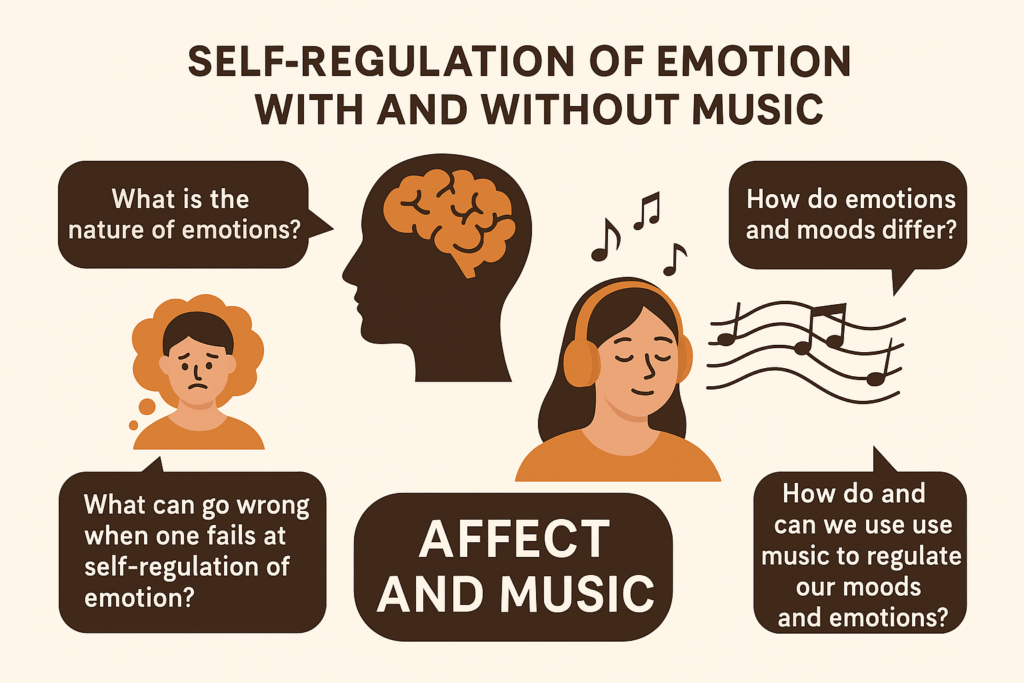Sunday evening, I led a humanist meeting on self-regulation of emotion with and without music.

We discussed the following questions:
- What is the nature of emotions?
- How do emotions and moods differ?
- What can go wrong when one fails at self-regulation of emotion (in the moment and more generally)?
- How do and can we use music to regulate our moods and emotions?
I chose this topic because I am writing a chapter, Affect and Music, for my new book, Discontinuities: Love, Art, Mind. The meeting and preparation for it did, in fact, fine-tune and extend my understanding.
For more information on the above, check out Beacon Humanist Meeting notes (2025-04-27): Regulating emotions with and without music.
Background
My Ph.D. thesis was part of the Cognition & Affect project at the University of Birmingham in England (supervised by the 2020 Barwise award winner, Prof Aaron Sloman). There, I learned that to understand humans as autonomous agents, we need to consider the interrelations of executive functions, cognition, motivation, and emotion. I’ve maintained an interest in these questions throughout my career (though I couldn’t focus on them when I worked at two high-tech startups early in my career). This perspective is evident in my first two Cognitive Productivity books. In the first of those books I continued in the Birmingham tradition of referring to the approach as “design-based” theorizing (not to be confused with design-based (qualitative) empirical research).
I later realized that the approach I use is sufficiently different from the Birmingham approach to warrant a distinct name: the integrative design-oriented approach. One of the main differences is a more extensive use of empirical psychology which Aaron Sloman looked at with disdain (considering it insufficiently attentive to theoretical AI). I summed up the approach here: A Manifesto for an Integrative Design-oriented Approach to Understanding Humans as Autonomous Agents – CogZest.
Science tends to operate in silos. Cognitive scientists, motivation researchers, and emotion researchers tend to ignore each other. The integrative design-oriented approach requires considering research from all three problem areas. As Popper said:
There are no such things as scientific disciplines. There are only problems and the urge to solve them. What determines the order in which science develops is the urgency of these problems and their resistance to the attempt to solve them.
In his Conjectures and Refutations: The Growth of Scientific Knowledge (1963).
